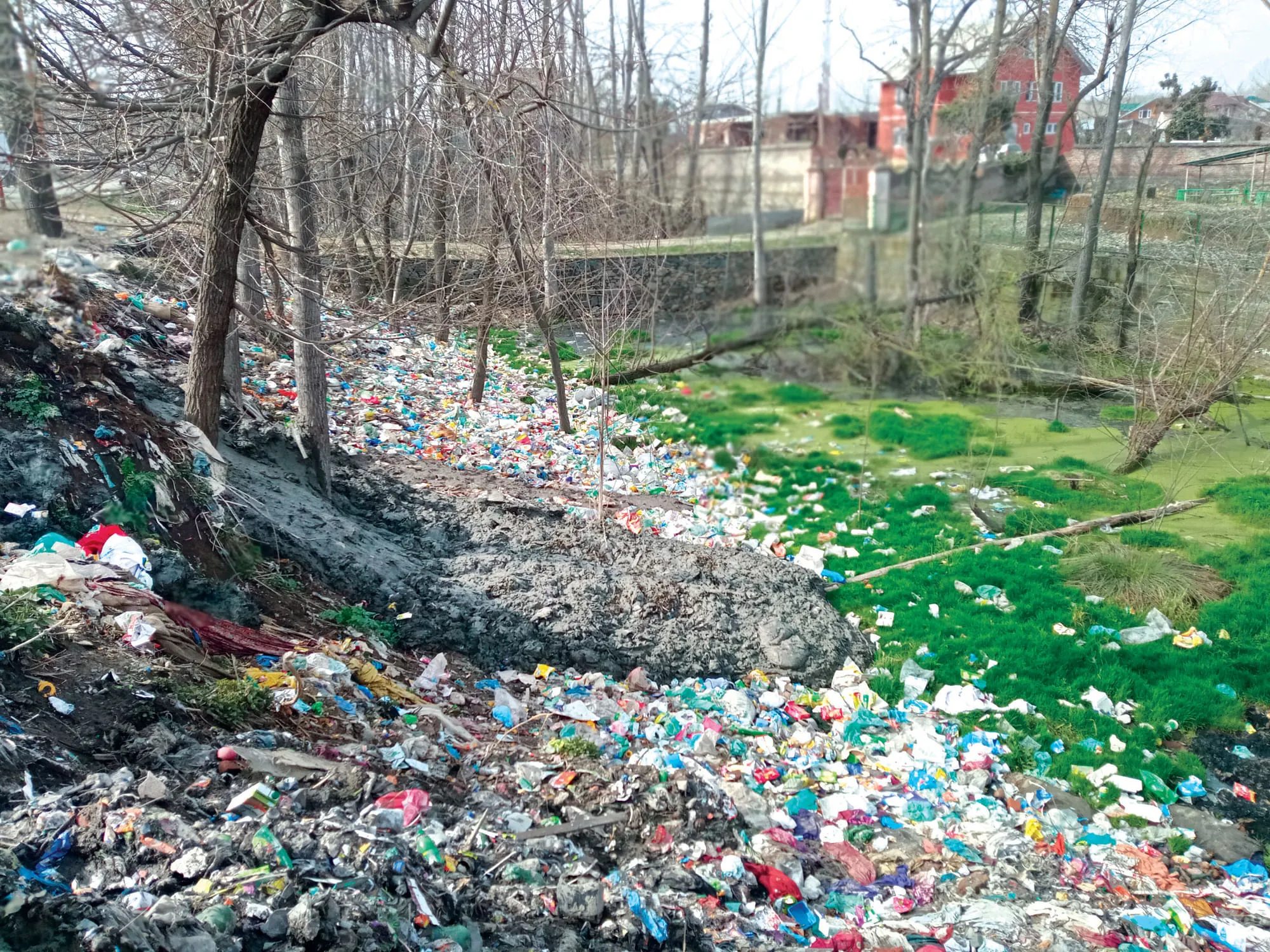Even as Srinagar city generates nearly 450 metric tonne solid waste daily, the much-needed solid waste management rules are not implemented on the ground.
The waste is stored at Achan, the only dumping site in the Srinagar city.
According to experts, due to ever increasing population and urbanization, the waste management has emerged as a huge challenge in Srinagar. “Yet the Srinagar Municipal Corporation (SMC) has failed to implement the ‘Solid Waste Management Rules’ (SWMR) aimed to dispose of the bio-degradable and non-biodegradable waste on scientific lines,” they said.
Under SWMR, segregation of waste at source has been declared important. “The SMC has also failed to procure adequate men and machinery for scientific disposal of solid waste through segregation, collection, treatment and disposal of waste,” experts said.
Sources said the SMC has just around 120 hoppers against the need of round 600 to collect and transport segregated waste from municipal wards.
Each municipal ward must have at least two hoppers, one to transport degradable waste and another for non-biodegradable.
“Few days ago, a pilot project was started in few municipal wards and people are being educated about segregation of waste at source,” said an SMC official. He added that SWMR are being implemented.
On 3 December 2018, Jammu and Kashmir High Court sought compliance report from the Commissioner, SMC on the implementation of various schemes besides a report indicating the amount spent and the steps taken for the public awareness on Swachh Bharat Mission.
An affidavit dated 14 May 2018 submitted before the HC reveals that out of Rs 12.11 crore received from Central government for the purpose, only Rs 1.22 crore have been utilized.
The court remarked that no efforts have been or are being made towards the SWM in J&K and said it is essential to address the issue on immediate priority.
The authorities have even failed to give J&K its first waste-to-energy plant so far. The project would see the city’s 450 metric tonne solid waste converted into low-cost electricity and also facilitate productive disposal of the harmful waste.






